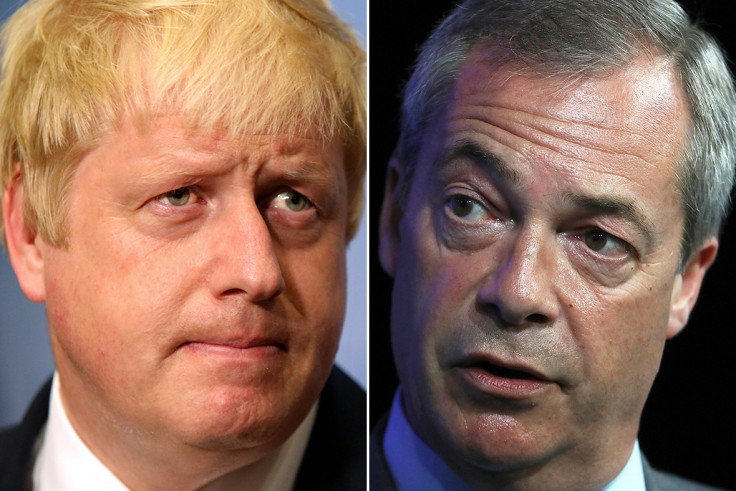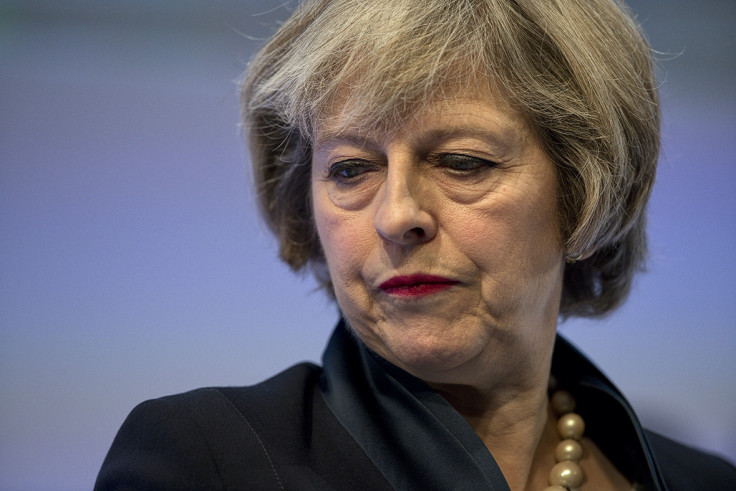This is the week we discover that Brexit wasn't the working class revolt it was sold as
Leavers are about to turn on the working people who were told that leaving the EU would solve their problems.

Such is the level of distrust in politicians today that being "authentic" is increasingly prized by electorates over truth-telling. Whenever yet another sharp-suited career politician pops up on the evening news, many of us seem instinctively to adopt the former Times correspondent Louis Heren's starting point (often falsely attributed to Jeremy Paxman) of "Why is this lying bastard lying to me?"
One consequence of our disillusionment with the "shiny men" of professional politics is that the door has swung inadvertently and invitingly open for demagogues who couch their rhetoric in a contrived posture of ordinariness. Think of the big-mouth who has ''had enough of experts'' and a certain bouffanted billionaire who speaks in the unvarnished language of the ''plain people''. The politicians who once claimed merely to stick up for regular folk have let us down, and so we have turned like spurned lovers to those who claim to be the most ''authentic'' representatives of the masses.
Both Trump and Brexit represent to some extent this triumph of authenticity over reason. It does not seem to matter that Trump is a billionaire who will cut taxes for the rich; what matters is that he speaks to the snooty-nosed middle classes in the same contemptuous tones as the common man. Never mind that centrist politicians say that Brexit may result in thousands of job losses; they also said there were Weapons of Mass Destruction in Iraq and that they had abolished boom and bust. What the public needs, or so the new breed of politician says, is someone who is ordinary: someone who is, even if they are rich, like you rather than like them.
And so it is that we have moved beyond the politics of narrowly-defined interests and are mired in the politics of authenticity. While the right is most effectively capitalising on it, the left is guilty of playing this game too. Prior to the Mayor of London Sadiq Khan being elected last summer, we were informed ad nauseam by his campaign team that the Labour candidate was the son of a bus driver before we were ever told what he would do for the capital's public transport system. Sadiq was authentic, which was apparently all that mattered.
Yet the problem with authenticity is that it is very often nebulous and thus easily simulated. Brexit may have been portrayed in some quarters as a working class revolt, but the Leavers are about to turn viciously on the very working people who were told that leaving the EU would solve their problems. Sticking it to elites has turned out not to mean going after elites at all. As for it being a supposed ''working class revolt'', the Chancellor Philip Hammond has already knocked that one on the head, telling the German newspaper Welt am Sonntag last week that Britain may be forced to ''change our economic model...to regain competitiveness''.
Competitiveness in this instance means getting rid of worker protections and slashing the corporation tax which helps pay for things like public services and the NHS – things which real working people (as opposed to romanticised abstractions) depend upon. That is after all what abandoning ''European-style taxation systems, European-style regulation systems'', as Hammond has said could happen, means in practice.

Hard Brexit outside of the single market, which Theresa May looks set to endorse in a wide-ranging speech tomorrow, certainly looks like a revolt; just not a revolt of the left-behind classes. Instead it resembles a jacquerie of horny-handed hedge fund managers and FTSE 100 chief executives.
Kelvin MacKenzie's Sun newspaper adopted a similarly fraudulent anti-elitism back in the nineteen-eighties, when readers were encouraged to identify with scabs, spivs and anyone else who stuck it to a ''loony left'' which believed in things like gay rights and trade unions. When flesh and blood working people went out on strike, or when they were the victims of a police cover-up at Hillsborough, the Sun's anti-elitism fell away like an old coat, and working people were derided and smeared viciously by the newspaper. They had merely been valuable as props with which to assail the political enemies of the Tory party.
The forward march of the power-hungry 'ordinary bloke' should act as a warning to the identity-obsessed Labour Party
Families who are ''just about managing'' perform a similar function for the Brexiteers and their cheerleaders in the media today. Supposed authenticity – the fact that Nigel Farage likes a pint and a fag and Boris Johnson railed in the summer against European ''fat cats'' – is dissolving into nothing as it crashes up against the interests of those who Farage, Johnson and rest of the Brexiteers really represent. The purported victory of ''democracy'' last June has turned out to be as hollow as the Sun's claim to be standing up for working families thirty years ago. Brexit means Brexit, which means one vote and the sweeping interpretation of the ''will of the people'' by a coterie of hardline government ministers with their own agendas and burning resentments.
Yet while fake anti-elitism is nothing new, the political climate has rarely been more propitious to its advance. As well as cautioning us all against crude ''anti-establishment'' politics, the forward march of the power-hungry ''ordinary bloke'' should act as a warning to the identity-obsessed Labour Party: politicians are better judged on what they do rather than who they are or who they claim to be. What really matters when a politician gets up on a podium is not which box they tick. Nor is it the number of pints and fags they have imbibed or how many Frenchmen they have insulted. We are better off judging them using one of the famously Eurosceptic Tony Benn's five questions for the powerful: In whose interests do they exercise their power?
In the case of the government's Brexiteers, it is not the workers.
James Bloodworth is former editor of Left Foot Forward, one of the UK's top political blogs, and the author of The Myth of Meritocracy.
© Copyright IBTimes 2024. All rights reserved.






